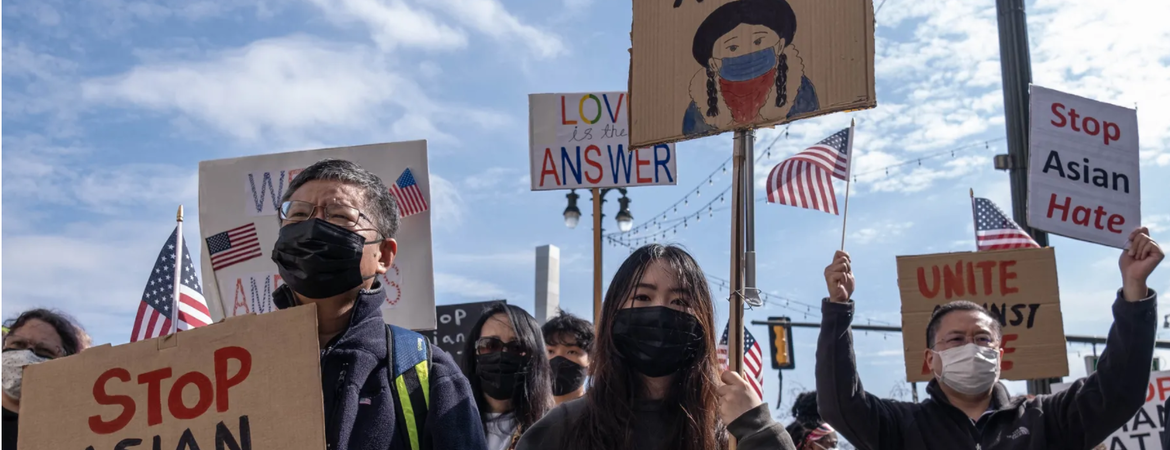Center for Social Innovation

Hate incidents and sentiment increased during the Trump administration as he used racist rhetoric and stoked violence toward several groups including Latino Americans, Black Americans, Muslim Americans, and Jewish Americans. In an interview with NBC News, University of California, Riverside political science professor Karthick Ramakrishnan noted that Trump’s racist comments about Latino Americans directly affected people’s behavior:
He said a 2020 study that examined Trump’s comments about Mexican immigrants during his presidential campaign — when he referred to them as “rapists” and declared that “when Mexico sends its people, they’re not sending the best” — found that the inflammatory remarks emboldened certain members of the American public and gave them license to express deeply held prejudices. Researchers dubbed this the “Trump effect” or “emboldening effect.”
In the case of anti-Asian hate incidents and crimes, experts point to discriminatory rhetoric used by leaders, including Trump, that associated Asian Americans with the spread of the coronavirus, combined with deep-seated biases about Asian Americans as foreigners as some of the factors driving such attacks. Additionally, due to the pervasiveness of the misleading “model minority” myth, some see resentment toward Asian Americans, who are stereotyped as doing well in the US, as another reason for such hostility.
“The precedent was set as soon as [Trump] made that ‘China virus’ remark, that’s continued to stick. The idea of, wait, wait, wait, you’re dirty. It goes into the fear of foreigners, which is how we’ve always aggressed against Asian people,” says Bisconti.
Punitive responses don’t really address the biases that people internalize or their relationship with violence — both of which are key aspects of hate crimes. While the new congressional hate crime law aims to include community service and education efforts as part of the penalties an offender faces, it’s still a reactive solution after failing to reach someone before they’ve committed such attacks.
“To prevent hate crimes requires something completely different. It requires not changing laws, but the thinking of people in this country,” says Levin, now a Northeastern University professor emeritus.